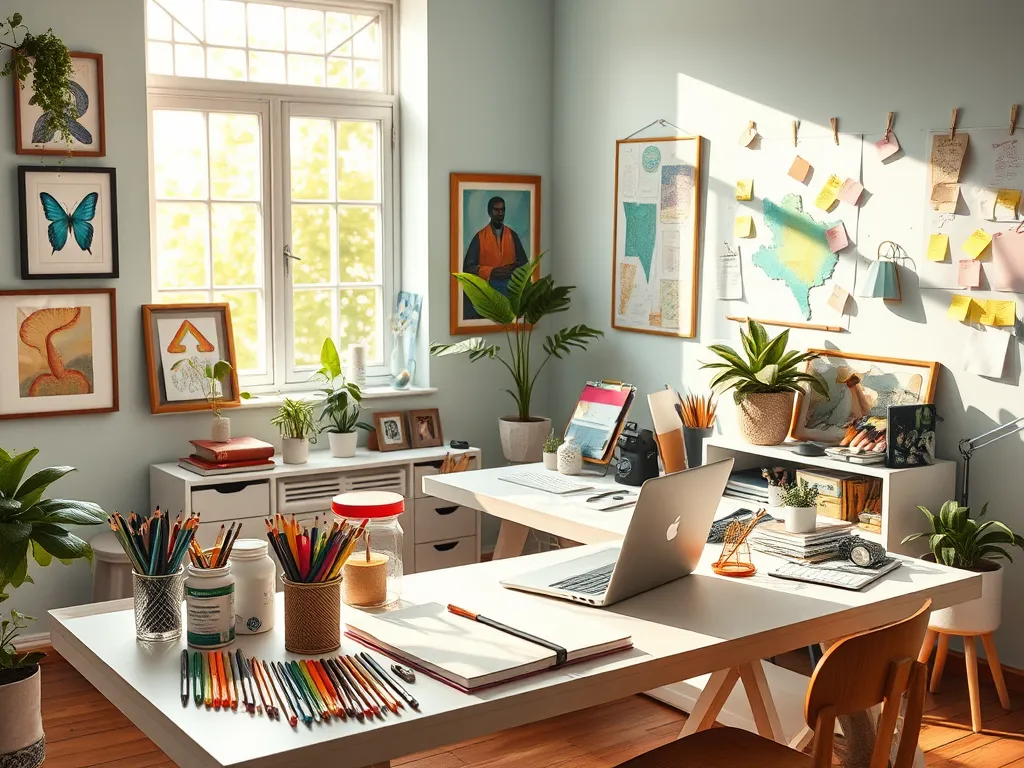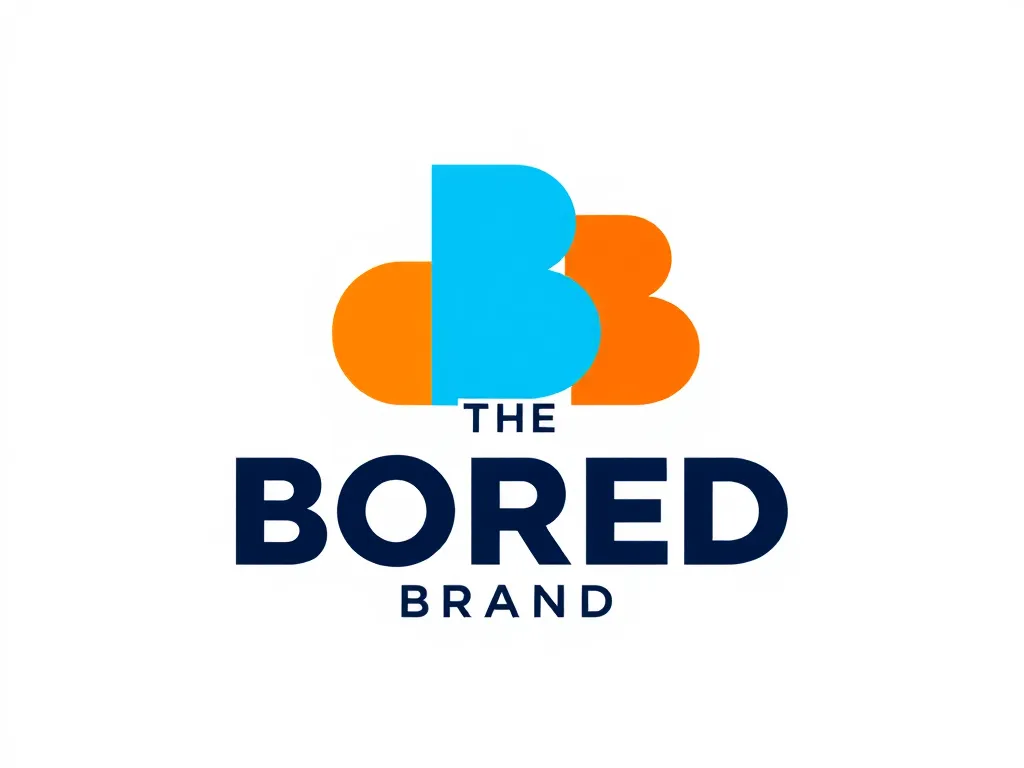10 Proven Ways to Unlock Your Creativity Every Day

The Power of Creativity: Unlocking Your Imagination
Creativity is often described as the ability to generate new ideas, concepts, or solutions that are both original and valuable. It extends beyond the arts, impacting problem-solving and innovation in various fields such as technology, business, and education. At its core, creativity involves connecting disparate thoughts and experiences to create something unique. Cultivating creativity can lead to personal growth and fulfillment, making it an essential quality for both personal and professional success.
There are many misconceptions about what creativity entails. Some believe creativity is an innate talent, reserved for artists or genius innovators. However, research has shown that creativity can be developed and nurtured over time. By understanding its nature, individuals can learn to harness their creative potential. This involves embracing curiosity, taking risks, and being open to new experiences. The journey of creativity is deeply personal, and there are countless ways to explore and express it.
Creativity is not just about the final product; it's also about the process. Engaging in creative activities can foster cognitive flexibility, enhance emotional intelligence, and improve overall well-being. Whether it's writing, painting, or even brainstorming solutions to a challenge, the act of creating allows individuals to explore their thoughts and feelings, leading to greater self-awareness. Embracing creativity is essential in today's fast-paced and ever-changing world, where adaptability and innovation are key.
To enhance your creative abilities, consider incorporating daily practices that foster creativity. These practices can range from simple morning routines to setting time aside for reflection. Engaging in such activities regularly can help you cultivate a mindset that embraces creativity, transforming it into an integral part of your life. Ultimately, creativity is about exploration, experimentation, and passion, urging us to step outside of our comfort zones and engage with the world in innovative ways.
In this article, we will delve into various aspects of creativity, including daily practices to improve your creative skills, how to create inspiring environments, overcoming common creative blocks, exploring different creative mediums, and building a supportive community that nurtures your creative journey. Let’s embark on this exciting exploration of creativity!
Daily Creativity Practices
Start your day with a morning routine that stimulates your mind and creativity. This can include activities such as meditation, stretching, or reading inspirational quotes. Consider setting aside 10-15 minutes each morning to engage in a creative exercise, such as sketching or freewriting. The goal is to prime your mind for creativity by cultivating a peaceful state and allowing your thoughts to flow freely without judgment or pressure. This small daily ritual can significantly boost your creative output throughout the day.
Innovation thrives on the foundation of Creativity, enabling individuals to bring unique solutions to complex challenges.
Journaling is another powerful technique for enhancing creative thinking. By writing down your thoughts, ideas, and experiences, you engage in a reflective process that can unlock new insights. Try different journaling techniques, such as mind mapping, prompted writing, or stream-of-consciousness journaling. Don’t worry about grammar or coherence; the goal is to express your thoughts freely and capture the essence of your ideas. This practice can also help you identify patterns in your thinking and stimulate new avenues of creativity.
Incorporating play into your daily life is crucial for nurturing creativity. Whether it's engaging in playful activities, like playing a musical instrument or doing puzzles, allowing yourself to experience joy and spontaneity can ignite your imagination. Play allows for exploration without consequences, enabling you to experiment and discover new interests. Embrace your inner child and set aside time each week for activities that bring you joy, allowing you to break free from routine and unleash your creativity.
Mindfulness exercises can also substantially boost creativity. Activities such as meditation, deep breathing, or yoga can help clear your mind of distractions and noise, allowing you to focus on the present moment. Engaging in mindfulness encourages a state of openness and receptivity, where new ideas can emerge. Make it a habit to practice mindfulness daily, as it can lead to heightened awareness of your creative instincts and support a more innovative perspective.
Lastly, setting creative goals for the week can provide you with direction and motivation to enhance your creativity. These goals could involve completing a creative project, trying a new creative medium, or dedicating time each day to a particular creative exercise. Make your goals specific, measurable, and achievable. Celebrate your progress and evaluate what worked well and what didn’t. This structured approach to creativity can help you stay focused and motivated while allowing for organic growth and exploration.
Inspiring Creative Environments
Creating a dedicated creative workspace can significantly impact your productivity and creativity. Your environment should reflect your style and be conducive to creative thinking. Consider organizing your space with tools and materials that inspire you, whether that's art supplies, books, or comfortable seating. Ensure that your space is well-lit and free from distractions, allowing you to immerse yourself in your creative pursuits without interruptions.
Nature can be an incredible source of inspiration for creativity. Engaging with the outdoors can revitalize your mind and stimulate new ideas. Spend time in parks, gardens, or landscapes that inspire you. Consider incorporating natural elements into your workspace, such as plants or natural light. Nature’s beauty can help you find peace and clarity, paving the way for more creative thoughts and solutions.
Decorating your space with inspirational colors and textures can further enhance your creativity. Choose colors that evoke the emotions you want to channel into your work. For instance, shades of green may inspire growth, while blues can promote calmness. Textures, such as soft fabrics or textured wall art, can add depth and sensory richness to your environment. The right combination of colors and textures can create a stimulating atmosphere that inspires creativity.
Organizing your space for better creativity is essential. Clutter can stifle your ability to think clearly. Take time to declutter and arrange your workspace in a way that is both functional and pleasant. Create designated areas for different tasks or mediums and keep only the items that inspire you. A well-organized space can help reduce distractions and allow for seamless creative flow.
Exploring examples of creative environments around the world can also serve as inspiration. From vibrant artist studios in Paris to innovative tech hubs in Silicon Valley, each environment has its unique charm and influences on creativity. Researching and visiting different spaces can provide valuable insights into how location and design impact creativity. Consider what aspects of these creative environments you can incorporate into your space to maximize inspiration.
Overcoming Creative Blocks
Identifying common creative block triggers is the first step in overcoming them. Creative blocks can happen due to various reasons, such as fear of failure, perfectionism, or external pressures. Take time to reflect on what specifically triggers your creative blocks. By recognizing these patterns, you can avert them through proactive strategies or mindset shifts that encourage creative flow.
Techniques to move past creative anxiety can include embracing imperfection and reframing your mindset. Allow yourself to create without the pressure of outcomes, focusing instead on the process and exploration. Engaging in free association activities, such as doodling or brainstorming, can help to break the cycle of anxiety and restore a sense of fun and curiosity in your creative work.
Rest plays a critical role in creativity. Research has shown that stepping away from a project or task can lead to breakthroughs and fresh ideas. Allow yourself to take breaks, whether through naps, walks, or meditative moments. Ensure you give your brain the necessary downtime to recharge, which can ultimately enhance your creative capacity.
Using feedback to ignite creativity is also important. Constructive feedback can provide valuable insights that fuel new ideas and approaches. Seek out feedback from trusted peers, mentors, or online communities, and remain open to different perspectives. Rather than perceiving feedback as criticism, view it as an opportunity for growth and exploration in your creative process.
Transforming criticism into creative fuel can turn challenges into opportunities. When faced with negative feedback, resist the urge to become defensive. Instead, contemplate the underlying message and think about how you can adapt or improve your work. Channeling this feedback into your future projects can drive growth, innovation, and new creative ventures.
Exploring Different Creative Mediums
Writing is a powerful form of creativity that allows individuals to express thoughts, emotions, and stories. Whether through poetry, fiction, or non-fiction, writing fosters self-reflection and communication. If you’re hesitant to start, consider free writing or prompts to ignite your imagination. The act of putting pen to paper can help you refine your unique voice and tap into a deeper understanding of yourself.
Visual arts, such as painting, drawing, and sculpture, provide a rich avenue for creative expression. Engaging in visual arts can enhance your ability to see and interpret the world around you. Explore different mediums, techniques, and styles to find your artistic voice. Remember, experimentation is key—don’t be afraid to make mistakes or try new approaches.
Performing arts, including music, dance, and theater, are dynamic forms of creativity that invite emotional expression and connection. Participating in these art forms can boost confidence and foster unique collaborative experiences with others. Whether you play an instrument, dance, or act, embrace the joy of performance as a medium for storytelling and creativity.
Digital creativity, through design and multimedia, opens doors to infinite possibilities for creative expression. Embrace technology and learn how to navigate digital tools to create, edit, and share your work online. Whether it’s graphic design, video production, or digital art, exploring these avenues can enhance your skill set and provide new platforms for reaching an audience.
Experimenting with new creative hobbies is vital for growth and exploration. Try activities outside your usual interests, such as pottery, photography, or creative coding. This variety can offer fresh perspectives and rejuvenate your creative spirit. Remember, the goal is not to excel but to discover and enjoy the process of creating in diverse ways.
Building a Supportive Community
Finding creative partners or collaborators can significantly enhance your creative journey. Seek out like-minded individuals who share your interests and ambitions. Collaborating with others can bring new ideas and perspectives to your work, fostering a sense of support and motivation that can help you deepen your creative pursuits.
Joining workshops and creative retreats can provide immersive experiences that ignite your creativity. Surrounding yourself with fellow creatives and engaging in structured learning can enhance your skills and inspire fresh ideas. Workshops often focus on specific mediums or techniques, allowing you to explore new avenues for your creative expression in a supportive environment.
Online communities for creative sharing can be incredibly valuable in today’s digital age. Platforms dedicated to showcasing and sharing creative work can offer opportunities for feedback, collaboration, and inspiration. Engaging with these communities can help you connect with other creatives, discover new techniques, and find encouragement in your artistic endeavors.
The role of mentorship in developing creativity cannot be understated. Finding a mentor in your field can provide guidance, encouragement, and constructive feedback on your creative work. Mentorship allows you to learn from experiences and gain insights that can elevate your creative practice. Consider seeking mentorship opportunities, both formally and informally, to support your growth and development.
Creating accountability groups for creative projects can motivate you to stay committed to your goals. These groups provide a platform to share progress, seek feedback, and celebrate each other's achievements. By establishing a routine and clear objectives within the group, you create an environment that fosters creativity and holds each member accountable for their creative aspirations.
